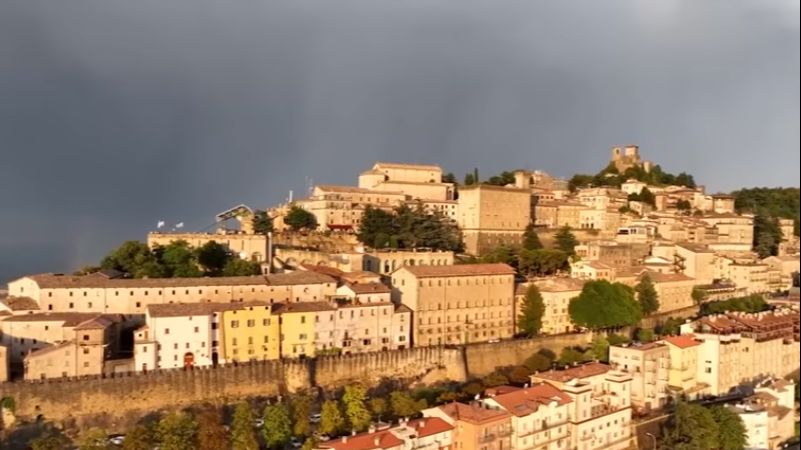Can you believe it? There is a country in the world that has absolutely no prisons. Not because they are free from government, nor because criminals can do whatever they want, but simply because this tiny nation is so peaceful that prisons are unnecessary. That's right, we are going to tell a strange but extremely interesting story.
The story of San Marino, the country without prisons.
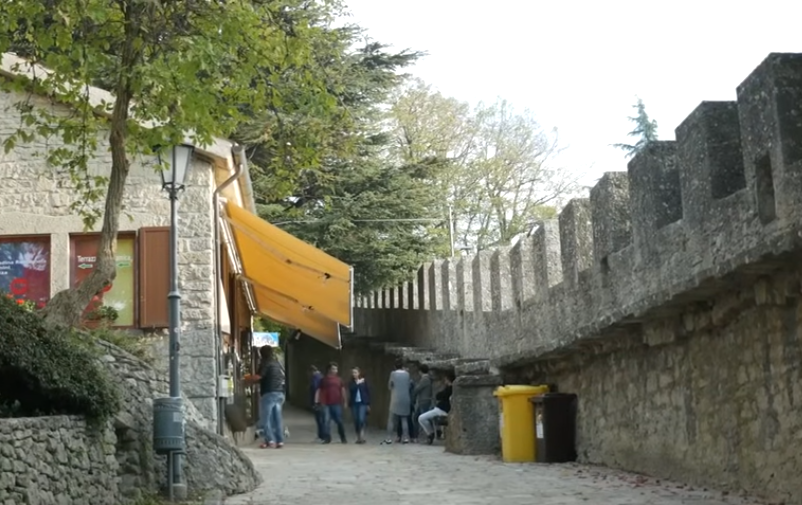
First, it must be made clear that San Marino is not just small, but extremely small. Its area is 61 km², which is much smaller than many communes in Vietnam, and its population of about 34,000 people is not enough to fill the Mỹ Đình stadium, not even equal to the population of a commune, or even a large apartment complex in Vietnam. However, this tiny country has a long history, established in the fourth century, meaning San Marino has existed for over 1700 years, becoming one of the oldest republics in the world.
Throughout its history, San Marino has survived countless wars in Europe from the time of Napoleon to World War I and World War II while maintaining its independence. The spirit of love for freedom and respect for justice is deeply ingrained in the blood of the people of San Marino, and it directly influences how they build their legal system. In most countries, prisons are an indispensable symbol of the law. Serious crimes lead to imprisonment, that is obvious. But in San Marino, things are different. Hence, it is said that they do not have prisons like other countries.
In fact, they do have a few small cells located in a monastery, but this place is only for temporarily holding someone for a few days or weeks. For long-term sentences, they will transfer them to Italy. That is a neighboring country of San Marino. Simply put, in San Marino, prisons are more like a waiting room at the local police station rather than a detention center like Hỏa Lò or Ancahat. The reason lies in many factors combined with a rare phenomenon in San Marino. First, in terms of area, a country as small as a commune, with a population less than that of a commune, makes the construction and maintenance of a large prison system unnecessary. It is like a commune in Vietnam where building a large stadium is not necessary.
San Marino is one of the safest countries in the world.
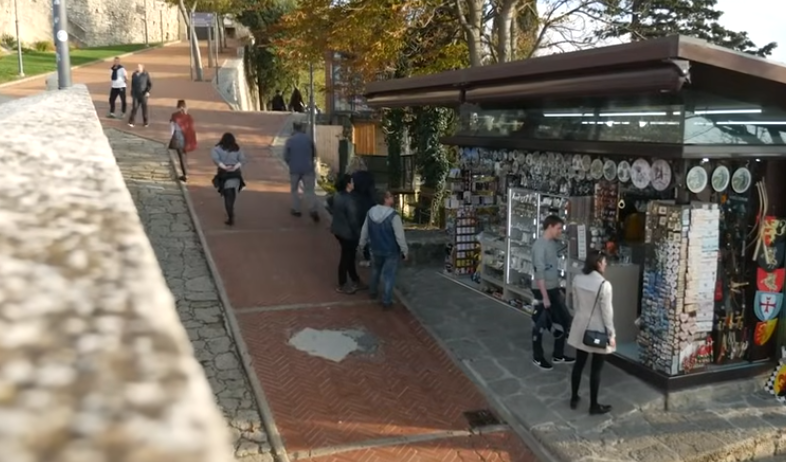
There are years when the entire country does not record a single murder. The most common crimes are not those that harm the body but tax fraud, traffic violations, or financial crimes. Minor thefts are almost non-existent. It is a small society where everyone knows each other, wealthy and close-knit. There is not much room for crime to thrive. At this point, many of you may wonder, are there ever serious crimes? Yes, but they are so rare that if they do occur, they can be counted on one hand over many years.
For example, in 2010, a money fraud case related to the San Marino banking system led to some people being convicted. But these individuals were sent to Italy to serve their sentences, or a few fights have occurred, but due to their small number, they are not enough to heat up the justice system of this country. Compared to other countries, the crime rate in San Marino is laughably low. Another important reason for the low crime rate in San Marino is that this country is very wealthy. The GDP per capita is about over 50,000 US dollars.
Industries such as tourism, finance, banking, and handicrafts are also very developed. Tourism accounts for about 20% of GDP, with millions of tourists visiting each year, still safe and peaceful. In short, the people of this country do not struggle for food, and with little social inequality, they have no motivation to commit crimes. Of course, we are talking about rarity, not that there are absolutely none.
Without prisons, what do they do with these criminals?
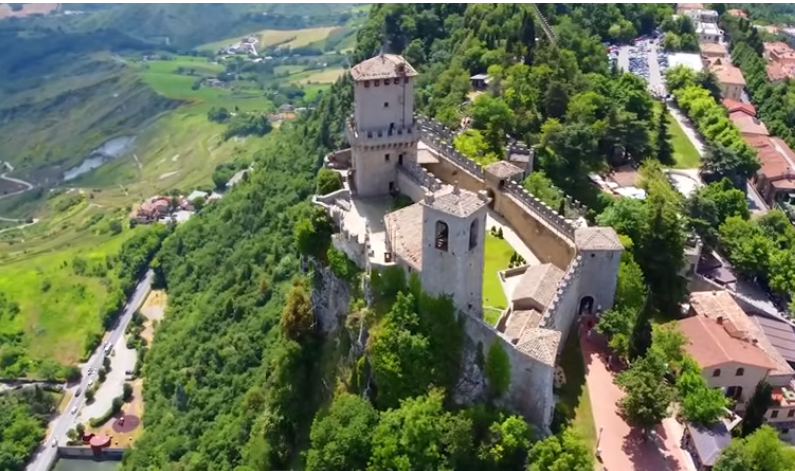
Let’s clarify a bit. When talking about San Marino having no prisons, it means they do not have a large building with high walls and guards like you often see in movies. There are no prisons like those for escaping. But that does not mean they have no form of detention at all. In very rare cases, when it is necessary to hold someone, San Marino has a few temporary holding cells right at the police headquarters in the capital, also called San Marino. These cells are relatively small, only holding people for a few days or at most a few weeks while waiting for trial or transfer to Italy.
Imagine a simple room that probably only has a bed, a table, and a locked door. There is nothing extravagant because they are rarely used. Can you believe it? In history, due to the lack of a fixed prison, the police in San Marino have even had to use hotels to detain offenders. That's right, you heard it correctly, it is indeed a hotel. A police officer would take the offender to a luxurious hotel room, lock the door, and assign a few people to guard outside. It sounds like a comedy movie, but that is the reality in San Marino.
Because San Marino is small and nestled within Italy, they have a very unique agreement with their larger neighbor. According to the bilateral treaty between San Marino and Italy, if someone is sentenced to a long-term prison term, for example, a serious crime which is almost non-existent in San Marino, that person will be transferred to a prison in Italy, usually a prison in the city of Rimini, about 20 km from San Marino. And guess what, all the costs of detention, from food, management, to room rental, are all paid by San Marino.
It’s like you don’t have a kitchen at home, so every time you want to cook, you borrow your neighbor’s kitchen and pay for the use of it. This approach helps San Marino save a huge amount of money that would be spent on building and maintaining a prison that they almost never need. It is indeed a smart way of handling by the San Marino government. But it doesn’t stop there; this is the most interesting part about San Marino. They absolutely do not like to imprison people. Instead of throwing someone in jail, they prioritize alternative punishments to address issues humanely. And here are some of the ways they handle it.
First is fines instead of prison sentences. This is the most common punishment. If you cause a disturbance at a bar or violate traffic laws, you are likely to receive a fine ticket. In a wealthy country like San Marino, fines are a quick and effective way to manage. The government also gets more money. Secondly, there is community service. Instead of sitting in prison, some offenders may be required to do public work such as cleaning parks, repairing roads, or assisting with state projects.
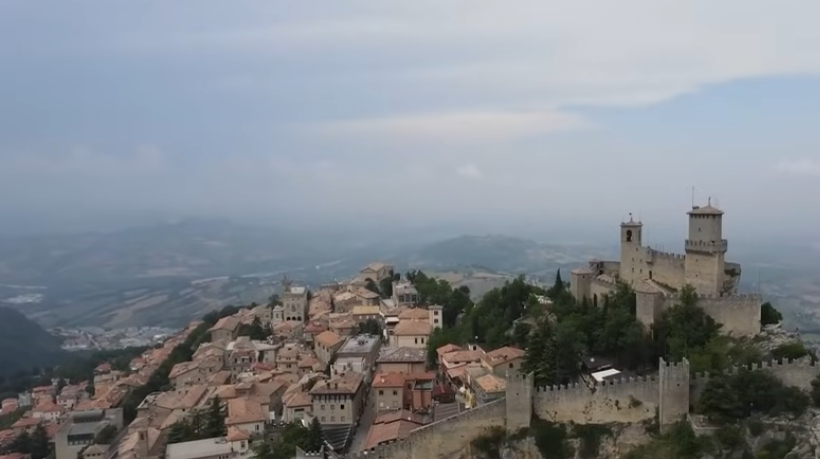
Imagine you have to pick up trash in Quảng Trung because you vandalized the street, helping the community while making you remember and feel ashamed. In some special cases, offenders may be required to stay at home and can wear electronic monitoring devices or be subject to regular checks. This allows them to still live with their families, not isolated from society, but still held accountable for their actions. This approach shows that San Marino not only wants to punish but also wants to help offenders correct their mistakes and reintegrate into the community. And this has helped them keep the recidivism rate extremely low.
In San Marino, related to prisons and the law, there is a special force called the peacekeepers of San Marino, Copo Del Gadamerica.
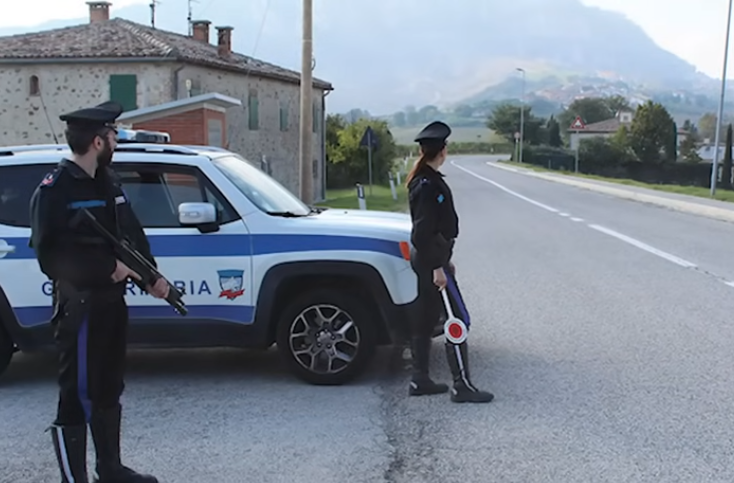
This special police force in the country was established in the 19th century. This team not only has the task of arresting criminals but also serves as a cultural symbol of San Marino. However, their task of arresting criminals is almost non-existent. They are groups of police dressed in dark blue uniforms, wearing classic caps with shiny gold badges. They appear in traditional festivals, parading through the cobblestone streets of the capital, attracting the attention of locals and tourists. Their uniforms are designed to be both solemn and historically rich, making you feel like you are watching a medieval performance.
This force is not only police but also acts as a paramilitary force, protecting national security and assisting in major events. With a small population, this team is not too large, only a few hundred people. But they are well-trained and extremely dedicated. They work closely with other forces, such as Gia Diroka, a unit specialized in protecting public works and borders. The mission of this force does not stop at maintaining security; they also play the role of friends to the community, regularly participating in educational activities, talking to students about the law, or even helping lost tourists.
In a small place like San Marino, the police are not only law enforcers but also an indispensable part of the community. The story of San Marino gives us a new perspective. A wealthy society, with little inequality, and a small, close-knit population, almost does not need a heavy punishment system. And punishment should be restorative rather than just imprisonment. Of course, San Marino is a super special case because it is too small and too peaceful. But it shows us that prisons are not always the best solution to maintain justice.
